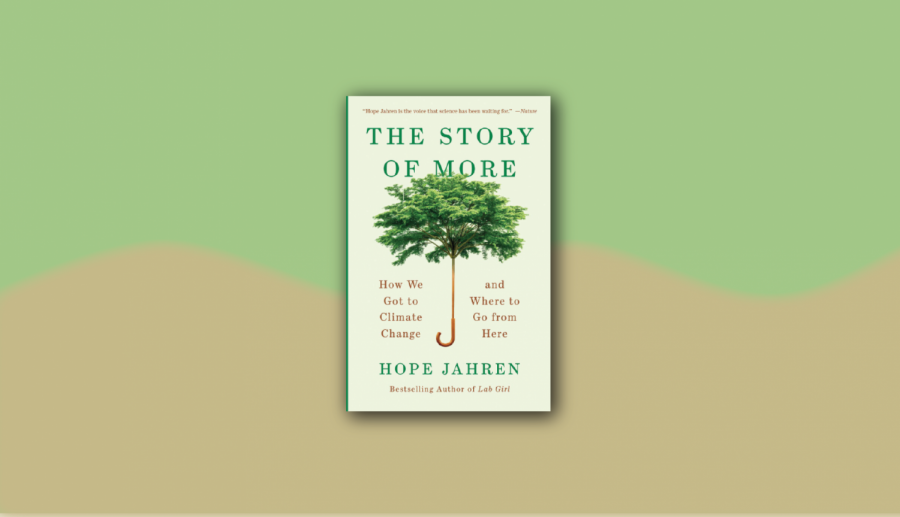Educators discuss student engagement in climate change education as part of One Book One Northwestern series
Daily file illustration by Joanne Haner
The One Book One Northwestern book of the year. This panel was part of a series of events this year that discuss the climate.
April 5, 2022
K-12 and college science educators discussed climate change education and shared their thoughts on engaging students during a virtual panel Tuesday.
“How could you think about trying to mitigate climate change without education?” said McCormick and earth and planetary sciences Prof. Neal Blair. “The planet’s going to continue heating for some time … (mitigating the effects) requires a good, sound education in earth sciences and ecology and all the other surrounding fields.”
Part of a series hosted by One Book One Northwestern, the panel built off ideas from Hope Jahren’s “The Story of More: How We Got to Climate Change and Where to Go from Here.” The five panelists outlined the lack of K-12 instruction on climate change, climate despair among students and inclusion in the arts.
The four professors on the panel said most of the time, students in introductory climate change courses have little understanding of the subject. Blair said one of his students told him it was taught like religion in K-12 schooling.
“‘Believe in climate change, and that’s all you need to know’ was kind of the message (students) were getting,” Blair said.
To counteract this approach, professors proposed solutions to help K-12 educators incorporate climate change more effectively into various classes. Earth and planetary sciences Prof. Yarrow Axford said climate change education should not be confined to earth science and geology classes.
Instead, she said the curriculum should be worked into subjects like physics, mathematics and chemistry. Educators could take advantage of student interest in climate change, she added.
“On a lesson about pH (in a chemistry class), why not talk about ocean acidification and do some hands-on exercises?” Axford said. “Leverage people’s interest in and concern about climate change to bring more fundamental science concepts to life.”
Panelists also discussed strategies to guide students through climate-related hopelessness and despair. In a recent American Psychiatric Association study, 55% of Americans reported feeling somewhat or extremely anxious about climate change’s impact on their mental health.
Patrick Baldwin, a high school teacher in Park Ridge, Illinois, said he approaches the topic with positivity. His students created final projects where they made changes to their own environmental practices. Their proposed solutions included changing their lightbulbs and writing letters to legislators. Seeing his students create tactile change was powerful, Baldwin said.
Others, like earth and planetary sciences and environmental sciences Prof. Patricia Beddows, were less optimistic about climate change solutions on the individual level. Beddows said students should not fall under the impression that any one person can fix the climate crisis. Instead, she offered a more attainable solution.
“You don’t need to work on all the wedges, but pick one that you’re particularly passionate about whether it’s agriculture, whether it’s energy systems, whether it’s cultural dimensions of change and equity injustice and push the boundaries on that,” Beddows said.
Panelists concluded by discussing how to connect art-inclined students to environmentalist initiatives. They said it’s important to see the value in artists and work with them to utilize art as a powerful medium for spreading climate change awareness.
While complex scientific explanations of climate change are important, Axford and Blair both said many audiences don’t gravitate toward them. The emotion in art is important, and artists should be educated to convey these concepts broadly, they said.
“I’ve often asked the question, ‘Who do you think has saved more trees? The scientist, the artist or the poet?’” Blair said. “My guess is it’s probably been poets and artists — you have to be able to reach people on their plane.”
The next One Book event is Friday at Harris Hall and will feature a screening of the movie “Don’t Look Up.”
Email: [email protected]
Twitter: @joannah_11
Related Stories:
— One Book One Northwestern centers climate change in this year’s programming
— ‘The Story of More’ named as One Book One Northwestern for 2021-22
— Author, scientist Hope Jahren delivers One Book One Northwestern keynote


